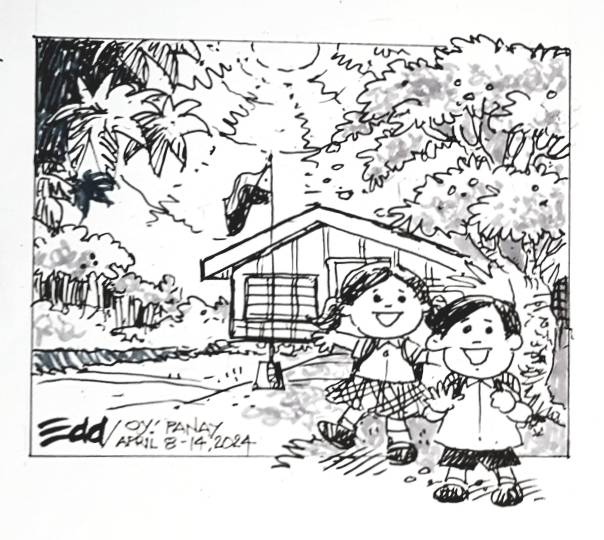The recent suspension of classes in various towns of Iloilo due to extreme heat underscores a pressing issue that demands strategic intervention. This was spearheaded by Iloilo City Mayor Jerry Trenas, subsequently followed by the towns of Dumangas and Calinog local governments.
While the move prioritizes the well-being of students and educators, it also highlights the vulnerability of our educational system to climate-related disruptions.
Extreme heat critically threatens health of children who are more susceptible to heat-related illnesses. Mayor Trenas' decision to suspend classes is a responsible approach towards safeguarding the welfare not only of students but of the teachers as well.
Conversely, disruptions in the academic calendar could exacerbate learning inequalities and upset the continuity of education, particularly in regions already facing socio-economic challenges.
To address these concerns, the government must consider multi-faceted approach, that include:
Climate-Responsive Infrastructure: Schools must invest in climate-resilient infrastructure with proper ventilation, shading, and cooling systems to create conducive learning environment.
Flexible Learning Modalities: These include the promotion of online classes, blended learning or modular approaches to ensure continuous learning despite temporary class suspensions. This requires ensuring access to technology and resources for all students, most specifically the disadvantaged.
Capacity Building: Such initiatives for educators must be conducted to equip them with knowledge and skills on climate-resilient teaching practices and in adapting a curriculum that addresses climate change-related topics.
Community Engagement: A collaboration between local governments, schools, parents, and community stakeholders must be fostered to develop localized adaptation strategies and response plans tailored to the specific needs of each locality.
Heat Mitigation Strategies: Planting trees, creating green spaces and promoting heat-resilient urban planning must be effected to reduce the urban heat island effect and minimize the impact of extreme heat on schools and its surrounds.
Public Awareness Campaigns: Conducting massive information drive about the health risks associated with extreme heat and the importance of preventive measures, including staying hydrated, wearing appropriate clothing, and avoiding outdoor activities during peak heat hours, is a must.
The suspension of classes due to extreme heat is a necessary precautionary measure as it underscores the urgent need for comprehensive climate adaptation and resilience-building efforts in the education sector.
By adopting proactive measures, investing in infrastructure, promoting flexible learning modalities, and fostering community engagement, the government can ensure educational continuity while safeguarding the well-being of students and educators in the face of climate-related challenges.
#WeTakeAStand #OpinYon #OpinYonPanayEditorial
